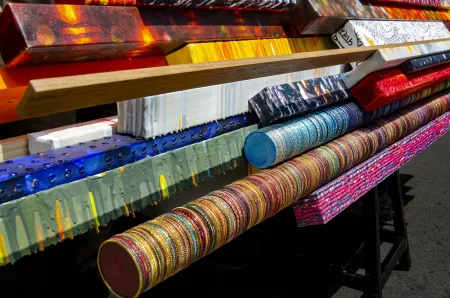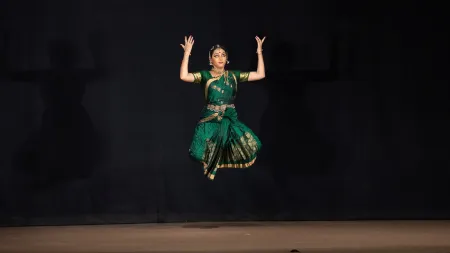- India
- International
Tactile breast screening by visually-impaired show promise of early detection of breast cancer in India
Using the highly developed sensory skills of visually-impaired women, a new screening methodology could help detect breast cancer risk, shows a study.
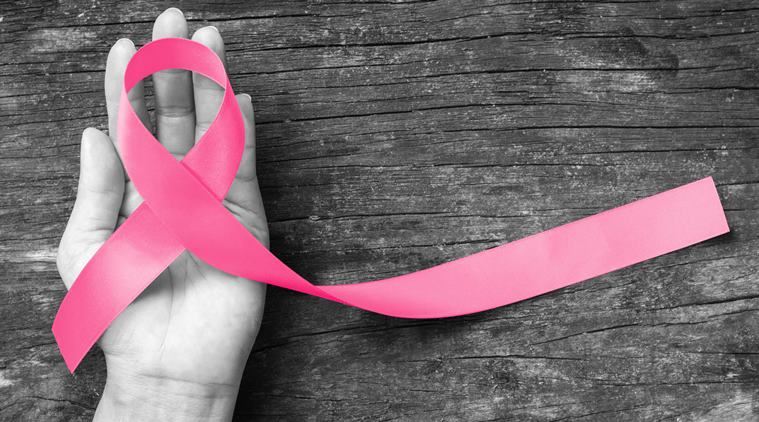 Tactile Breast Examination is a unique breast screening technique that uses the highly developed sensory skills of visually impaired women for manual breast health screening. (Source: Getty Images/Thinkstock)
Tactile Breast Examination is a unique breast screening technique that uses the highly developed sensory skills of visually impaired women for manual breast health screening. (Source: Getty Images/Thinkstock)
What is tactile breast screening?
When 42-year-old Manisha Anand got a call for a tactile breast screening to be done by a trained visually impaired woman, she called up her mother, a gynaecologist, consulted her, and signed up for the examination programme. Anand, who has a family history of breast cancer, eventually had her first tactile breast screening in June this year.
“I have always been doing self-breast examinations (SBE) due to my family history that puts me at credible risk. When I came to know about the screening, I was initially skeptical but once I was there, with the trainers who were visually-impaired, I realised it is a safe, more private and unique method of doing a screening,” she said.
Now, she recommends the cost-free non-invasive preventive check-ups to all her friends and family. As a technique that uses the highly developed sensory skills of visually-impaired women for manual breast health screening called Medical Tactile Examiners (MTEs) who use strips of tape called ‘docos’ marked with Braille coordinates, the technique, originally introduced in Germany about 10 years ago, has been gaining traction in India ever since its launch here.
ALSO READ | World Cancer Day 2019: How to detect early signs of breast cancer?

Such has been the rise that over the last four months, MTEs have been able to detect pre-cancerous or cancerous lesions in around 17 women. Their findings were affirmed medically by radiological tests, according to a validation study started by the CK Birla Hospital for Women (CKBHfW), Gurugram and National Association for the Blind (NAB) India in March 2019, with support from Bayer Crops Science Group in India in collaboration with Discovering Hands, Germany.
As per the study, more than 500 random women from Gurugram and other parts of Delhi NCR underwent TBE; along with breast ultrasound for those less than 40 years and mammogram for those more than 40 years of age.
Could tactile breast screening be effective in detecting breast cancer?
According to the study results, the initial trends suggested “very high level of sensitivity for detecting breast lesions”. “Changes were detected in 30 per cent women, 40 per cent of which were confirmed by radiology and 20 per cent had cancerous or pre-cancerous changes. Majority of them were still at stage I and stage II. Overall 3.5 per cent of women were detected with lesions that could have affected them adversely,” the study read.
ALSO READ | Explained: How leap in breast cancer therapy will help women in India
“The MTEs are able to detect lumps as small as 0.5-0.6 mm compared to when it is escalated to a size of 1-2 cms which can mostly be detected through a clinical examination,” said oncologist Dr Mandeep Malhotra from CKBHfW.
Considering breast cancer is the most common cancer among women in India as almost 1.5-2 lakh new women are diagnosed with it between the age of 40-50 years and even younger, the MTEs have been able to extrapolate 1 in 22 lifetime risk in 500 women and improve the survival of another 23 women who would have developed the cancer in future, as per the study.
According to the American Cancer Society Guidelines, the standard screening process of mammography, should start at the age of 45. However, breast cancer in Indian women happens at least a decade earlier in comparison to western women with peak incidence at 40–50 years owing to many risk factors including inherently higher breast density.
Also, many experts believe that there is limited application of mammography in Indian settings. The manual breast screening methods in the form of SBE and Clinical Breast Examination (CBE) are also sparingly used. “SBE is limited by the lack of proper knowledge and confidence and CBE by the lack of sufficient time and resources,” rued Dr Malhotra.
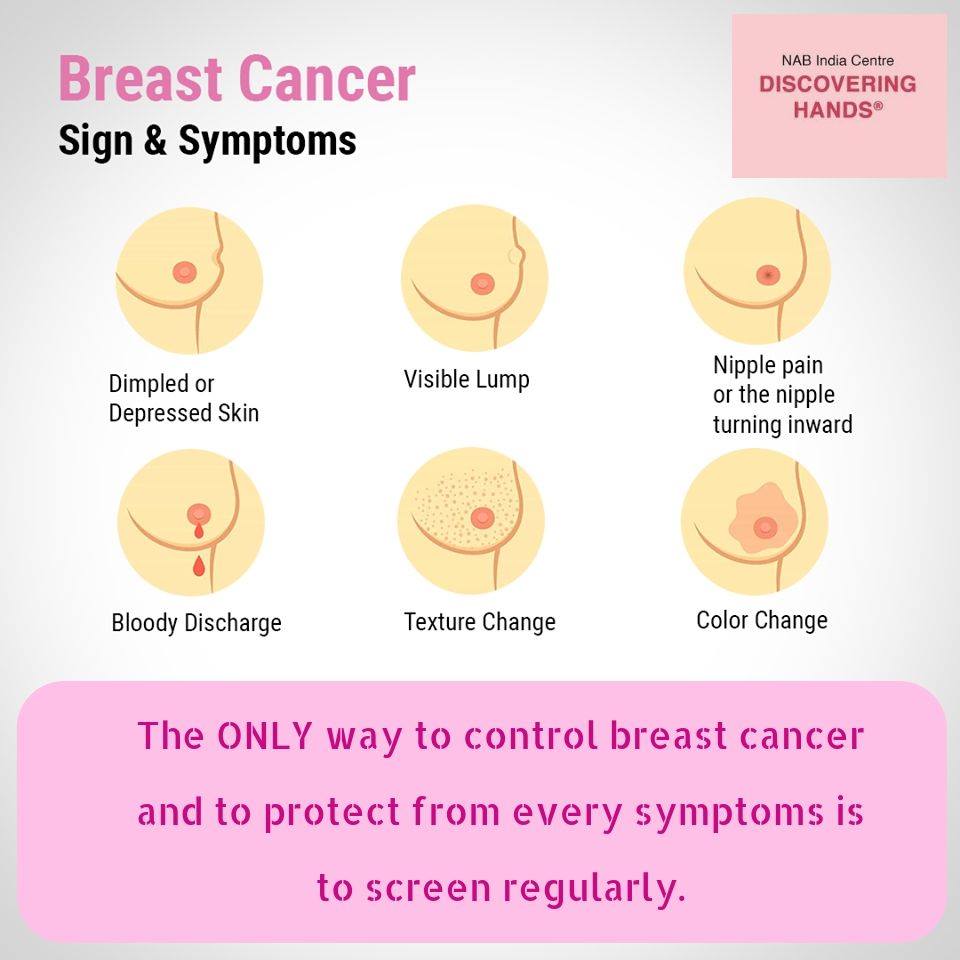 Be aware about your body. (Source: NAB-Discovering Hands/Facebook)
Be aware about your body. (Source: NAB-Discovering Hands/Facebook)
Commenting on the findings emerging from the study, Dr Malhotra said, “The country is witnessing a steady rise in incidence of breast cancer (11.54 per cent, Globocan 2012) and also mortality due to the disease (13.82 per cent, Globocan 2012). In urban areas, one in 22 women are likely to suffer from breast cancer during their lifetime. Of these, 50 per cent may not survive within five years of diagnosis. Inadequate screening and advanced stage of presentation are the contributors to the rising death toll. Early detection by effective screening protocols is the possible solution.”
How is tactile examination done?
The examination by MTE involves dividing the breast region into a four-part grid using strips which cover the breasts, underarms area till the ribs, neck and back. The examiner then slowly feels her way along this grid using the Braille-enabled tapes and records the findings digitally on a computer. It also involves recording of risk factors for breast cancer including family history, teaching women how to do SBE, and encouraging them to undergo timely radiology.
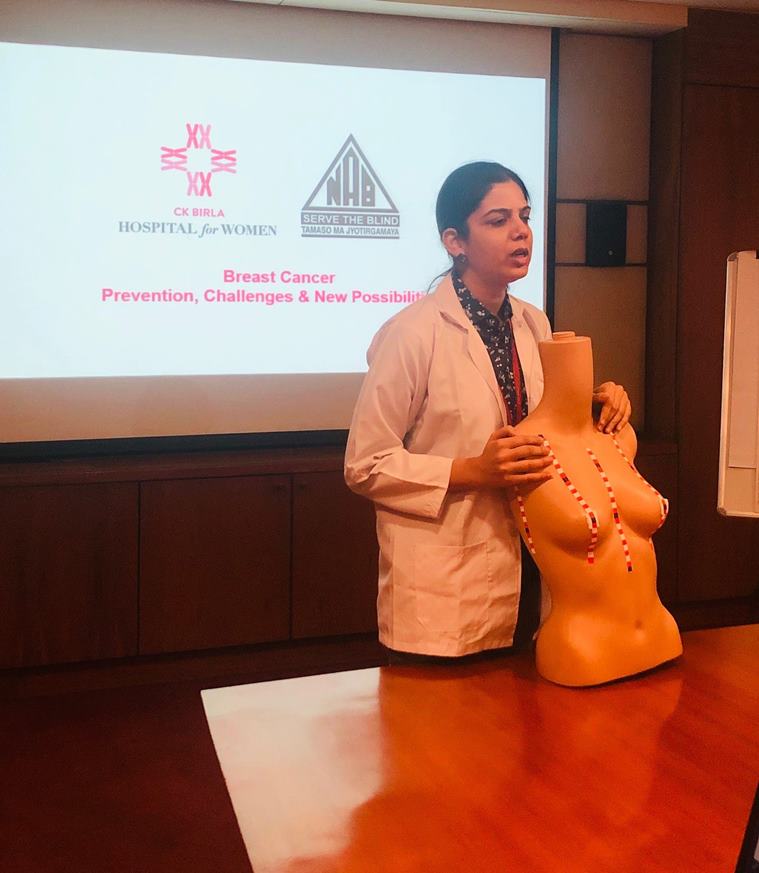 Medical Tactile Examiner Sakshi Dalmia showcases how a breast cancer screening is done through the tactile methodology.
Medical Tactile Examiner Sakshi Dalmia showcases how a breast cancer screening is done through the tactile methodology.
As per the study, while less than two per cent women were into any kind of active breast screening, post TBE, majority of them started doing SBE and have committed to timely MTE/CBE and radiology.
How did the idea come to be?
While the idea of visually-impaired people having more heightened sensory touch than their sighted counterparts has been around for years, a German doctor thought of streamlining the idea while in a shower back in 2005. “Three minutes is all the time I would have as a doctor to do clinical breast examinations in my practice,” said Duisburg-based gynaecologist, Dr Frank Hoffmann.
ALSO READ | Eating walnuts may help fight breast cancer: Study
Dr Hoffmann said he founded the social organisation, Discovering Hands (DH), in order to save lives through early detection, and to also open the medical field to the blind. DH trains the visually-impaired women over nine months to “conduct safe, repeatable, and accurate clinical breast examinations without any radiation or side-effects”.
Dr Hoffman, who was recently in Delhi, told indianexpress.com that MTEs made the diagnostics process simpler. “Being a doctor myself, I could see that there was a kind of distance between patients and doctors, specifically oncologists. When MTEs are in the picture, the exchange becomes simpler. Women, who are not willing to undergo diagnostic processes before are keen to come forward as the University of Essen study showed,” he said.
The study from Essen University’s women’s clinic in Germany concluded that MTEs found more and smaller tumours than doctors in 451 cases which consequently allowed for earlier diagnosis and more effective treatment.
However, oncologist Dr Prashant Mehta from Asian Institute of Medical Sciences, Faridabad, while appreciating the new methodology puts out a word of caution that people “shouldn’t read too much between the lines” as it doesn’t replace clinical examinations. “It is a part of the routine screening process but doesn’t change or improve what’s already there. So, can’t hype it too much as well. After all, the MTE is just assisting the doctor,” he said.
How are visually-impaired trained and subsequently employed?
DH has examined more than one lakh women in Europe and Dr Hoffman intended to bring similar success to India and around the globe. In India, NAB got the instructors trained in Germany who have in turn trained 13 visually-impaired girls as MTEs in the pilot phase. The trained MTEs are currently running camps at various corporates, through local rotary clubs and at various Resident Welfare Associations and are also working as interns at various hospitals.
The training includes six months of just studying the breast in detail alongside practicals, and three months of internship after which they receive certification from the North Rhine-Westphalia medical association.
ALSO READ | Unhealthy gut promotes breast cancer spread, says study
Sakshi Dalmia was among the first seven-member batch of MTEs to be trained for the job. “I had an acquired disability because I started to lose my vision when I was in graduation. After struggling to accept my disability for several years, I came to NAB for vocational training. I didn’t have any knowledge of Braille or JAWS screen reader or even knew that blind people used white cane for movement,” Dalmia, who belongs to a small village called Rudali, near Lucknow told indianexpress.com.
However, the 22-year-old was determined to “make something out of my life”. “I just wanted to do something with my life. And now, its a great feeling to be working in a hospital. When somebody asks me about what I do, they are shocked to know I am here. It feels so proud to know that I am capable of achieving things. Now, I am employed,” she said.
Shalini Khanna, director of NAB, who has been working towards skilling visually-impaired women on life skills and employment for over 20 years aspires that the programme should be able to substantially improve the early detection check from its current level and reach out to more women in different cities in India, thus empowering more blind women of the country to be able to be independent in their lives with a new vocation of a kind.
Apr 19: Latest News
- 01
- 02
- 03
- 04
- 05






















